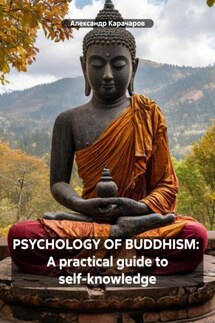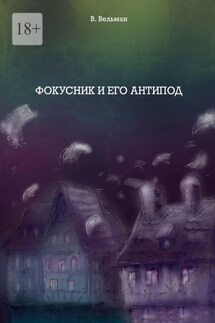PSYCHOLOGY OF BUDDHISM: A practical guide to self-knowledge - страница 8
Example: Your friend is usually late for meetings. You agreed to meet at a café at 7 p.m. At 7:15 a.m. he's still gone. You assume that he's likely to stay another 10-15 minutes, and this assumption turns out to be correct.
Parable: Once a traveler got lost in the forest. He saw two roads diverging in different directions. On one road there were fresh tracks leading deep into the forest, and the other was overgrown with grass. The traveler assumed that no one had walked along the overgrown road for a long time, and decided to follow the road with footprints. This parable shows how, even with a lack of information, we can make the right assumption based on common sense and intuition.
Direct perception without definition (Skt. aniyata-pratibhāsa; Tib. snang la ma nges pa):
It's like a fleeting vision, a first impression, but it's even more fleeting and indefinite. Imagine that you catch a glimpse of something out of the corner of your eye. You are aware that something has happened, but you don't have time to determine what it is. This direct perception without definition is a primordial sensory impression that has not yet been clearly formed and named in our minds. It's like a shadow flashing on a wall – we see movement, But we don't know what caused it.
Example: You are sitting in a quiet room and suddenly you hear a rustle in the next room. You are aware that there was a sound, but you cannot immediately determine what it was – whether a book fell, a mouse ran by, or something else.
Parable: A disciple asked his Zen teacher, "What is mind?" The teacher suddenly shouted and clapped his hands. The disciple shuddered at the surprise. The teacher said, "This is mind—pure awareness of the moment without any thoughts or definitions." This parable, like a flash of lightning, illustrates the fleeting nature of pure perception that precedes conceptualization.
Doubt (Skt. saṃśaya; тиб. Di Tashome):
It's like a swing, oscillating between two or more possibilities. Imagine not being able to remember if you turned off the iron when you left the house. Your mind is torn between two options: "turned off" and "didn't turn off", causing a feeling of anxiety. Doubt is a natural part of our cognitive process when we are faced with a lack of information or conflicting data.
Example: You are offered to invest money in a new project that sounds very tempting. On the one hand, you see the potential benefit, on the other hand, you feel apprehension and uncertainty.
Parable: One day a man was standing on the bank of a river and could not decide whether to ford it or to take a boat. He doubted whether it was shallow enough to make the boat capsize. His doubts paralyzed him like fetters, and he was never able to get to the other side. interfering with decision-making and action.
False cognition (Skt. Viparaya-jñāna; тиб. People She):
It's like a mirage in the desert, a misperception or a misunderstanding of reality. Imagine that in the desert you see a mirage, a shiny surface that looks like water. Your mind mistakenly interprets the visual sensations as water, when in fact it's just hot sand. False cognition is a distortion of reality where our mind mistakes an illusion for reality. This can be due to a lack of information, bias, or simply a perceptual error.
Example: You look at a straight stick that is half submerged in water, and it appears to be broken at the water-air interface. This is an optical illusion – a false perception caused by the refraction of light.






